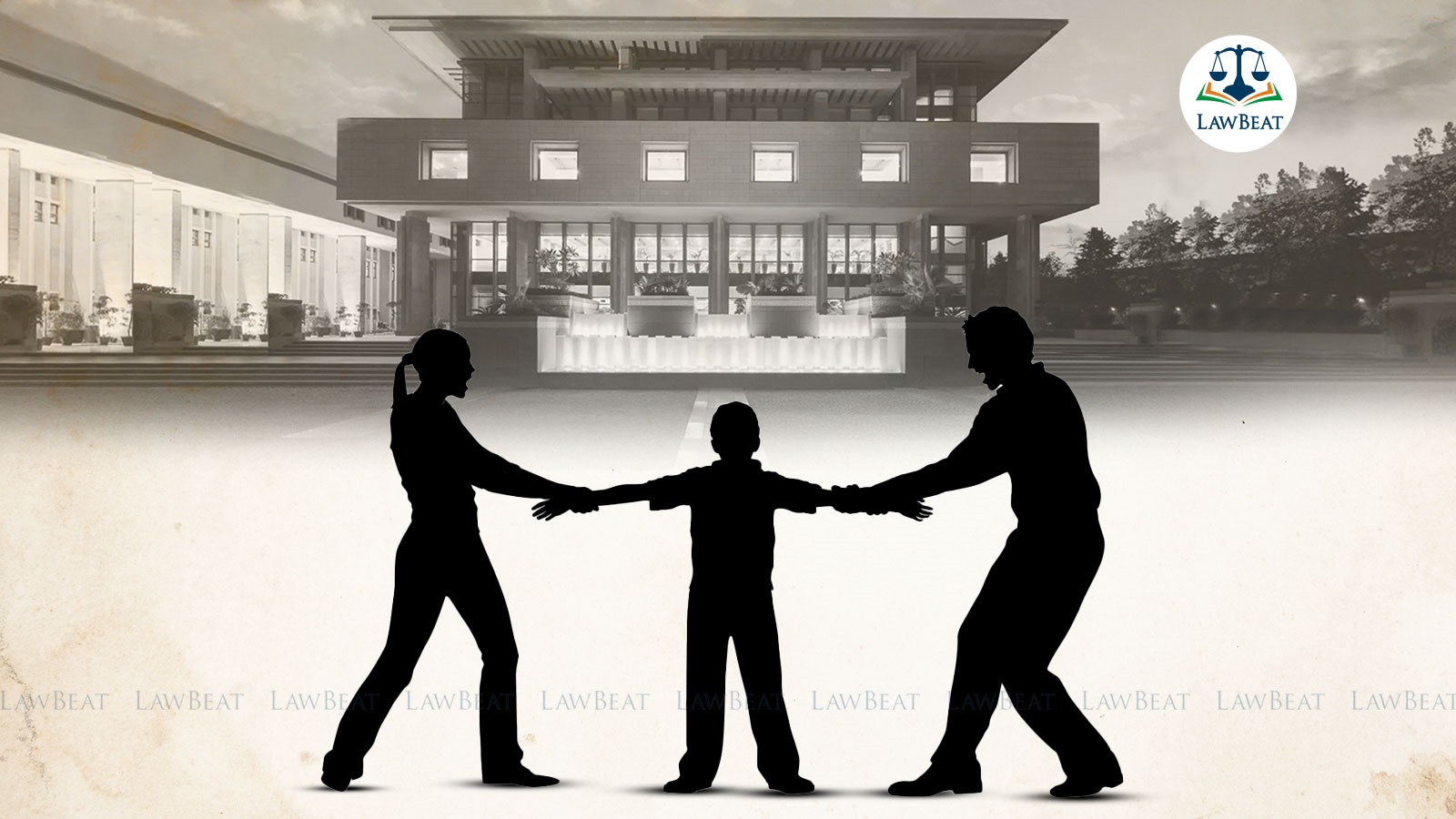Igniting Animosity And Hostility In Minor Child To Be Used As Weapon Amid Marital Dispute Is Cruelty: Delhi HC

Court said that both parents have the right to love and affection from the child, and any act denying this constitutes mental cruelty
In granting divorce to a husband, the Delhi High Court emphasized the reprehensible practice of exploiting children as instruments by parents amid marital disputes. TCourt addressed complex matters concerning marital discord and accusations of cruelty.
Central to the case was the allegation of severe mistreatment inflicted by one spouse on the other, notably through endeavors to exploit their minor child as a means to further their conflicts. The court, in its decision, stressed the seriousness of such conduct, highlighting the emotional distress inflicted upon both the child and the affected parent.
The bench of Justice Suresh Kumar Kait and Justice Neena Bansal Krishna held, “Howsoever abysmal the differences maybe between the spouses, but in no realm can the act of the aggrieved spouse of igniting animosity and hostility in the minor child in an attempt to use the child as a weapon to get even with their spouse, could be justifiable. Such vindictiveness aimed to erode a father-daughter relationship is not only an act of extreme cruelty to the father but also gross inhumanity to the child”.
An appeal was filed by a husband challenging the judgment of the Family Court that dismissed his divorce petition under Section 13 (i) (ia) of the Hindu Marriage Act, 1955 (HMA). Advocate Chandan Kumar Mandal appearing for the husband contended that the wife deserted the matrimonial home without justification, prompting deduction of Maintenance Allowance from the husband's salary. Later the wife demanded separate accommodation, leading to physical altercations with the husband's mother.
Advocate Mukesh Kumar representing the wife asserted that she along with her minor daughters were ejected from the marital residence and was compelled to seek maintenance from the Army Commanding Officer as the husband ceased providing support.
The court noted that despite both parties being educated, their marriage faced challenges early on, with the wife leaving and returning after five months. Maintenance was deducted from the husband’s salary during this period. They later moved to a rented accommodation, where they stayed briefly before the husband arranged another accommodation in Vikas Puri, which the respondent refused to join, opting to stay in Paschim Vihar with her two daughters.
The bench further observed that efforts to reconcile proved futile, with continued hostility. The husband alleged false complaints made by the wife to the police, citing incidents where she visited their rented accommodation and caused distress to his mother. The bench observed that despite her education, her inability to manage emotions led to baseless accusations of adultery against the husband, unsupported by evidence. Such unfounded allegations constitute mental cruelty, as established in legal precedents.
The court further underscored the wife's irrational behavior of involving their eight-year-old daughter in their disputes. While the husband and wife may lack mutual affection, involving their child in their conflicts is unjustifiable. Taking their daughter with the intent to accuse the husband of adultery and involving the police harms the child's psyche and turns her against her father. “A person may be a bad husband but that does not lead to the necessary conclusion of he being a bad father. The act of the respondent in trying to turn the children against their father and even making her write a complaint against her father, is a clear case of parental alienation, which in itself is an act of grave mental cruelty”, the cench added.
Furthermore, the court reiterated that despite the bitterness between spouses, it's inappropriate to involve the child or turn her against the father. The actions of the wife were deemed as parental alienation, where one parent intentionally creates negativity toward the other parent to damage their relationship with the child.
Court stressed that both parents have the right to love and affection from the child, and any act denying this constitutes mental cruelty.
The bench observed, “This is a clear case of parental alienation where the respondent has not even spared her children and has involved them in her differences, with the appellant. Such conduct of making unsubstantiated allegations of adultery coupled with involving their child in the inter se disputes between the parties, can be termed as nothing but an extreme act of cruelty”.
The court therefore concluded that the relationship between the parties is dead and filled with bitterness, irreconcilable differences, and prolonged legal battles, is beyond repair. Insisting on its continuation would only inflict more cruelty on both parties involved. The court granted divorce to the Couple.
Case Title: X v Y
